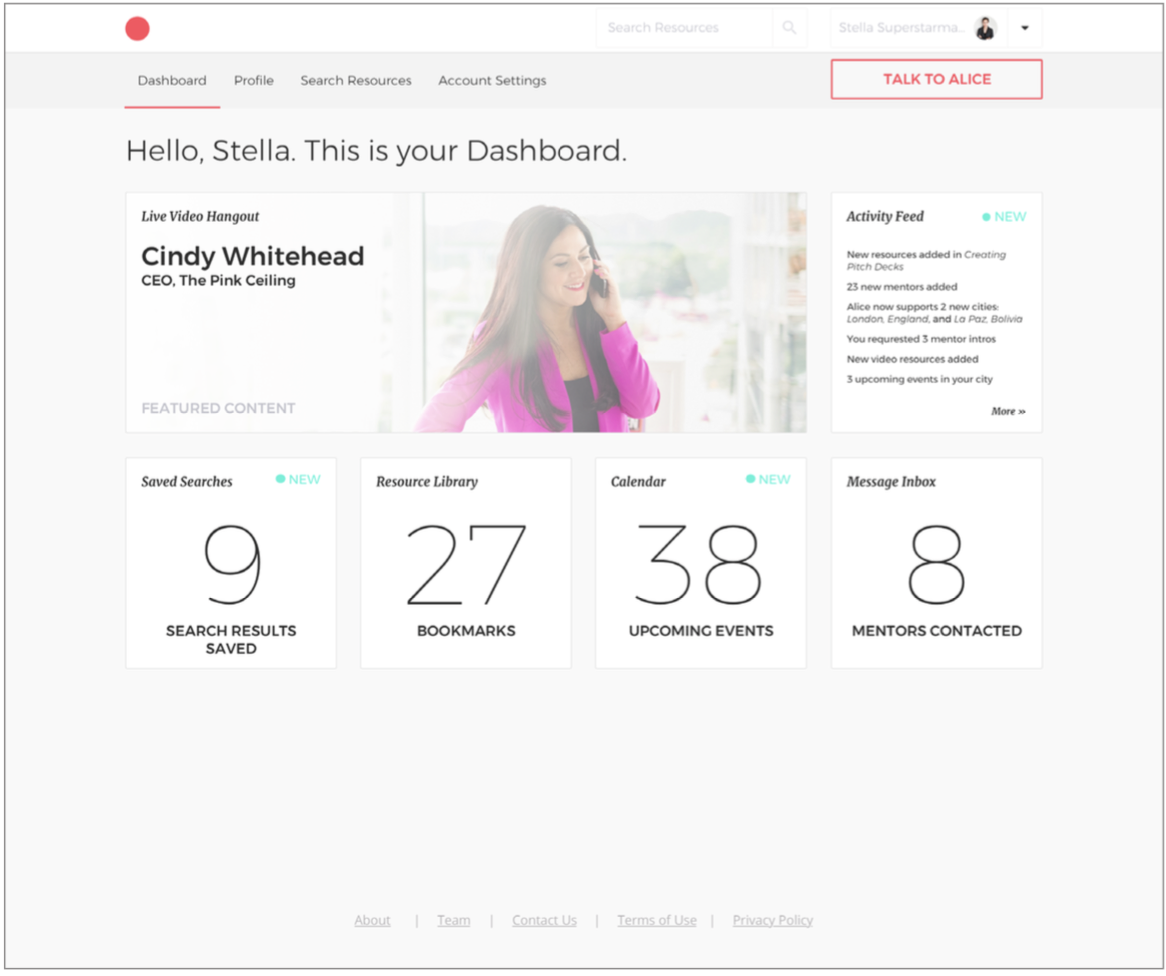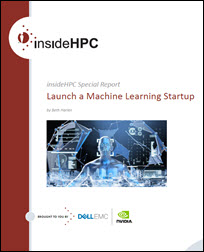We continue our five-part series on the steps to take before launching a machine learning startup. The complete report, available here, covers how to get started, choose a framework, decide what applications and machine learning technology to use, and more. This post also includes a few examples of successes organizations have been able to achieve through the application of deep learning technologies.
Sustainable business growth, fraud protection and life sciences are just some of the successes organizations have been able to achieve through the application of deep learning technologies and techniques. Here are a few examples:
‘Hello, I’m Alice’
Describing itself (or herself) as a “connector” on a data-driven, scalable ecosystem named Team Circular Board, Alice is the world’s first artificial intelligence platform for women entrepreneurs. Developed in partnership with Dell EMC and Pivotal, Alice acts as a virtual mentor that helps female founders to achieve and accelerate sustainable business growth by connecting them, in real time, to the resources they need. These connections are based on factors like startup stage, industry and revenue.
Access to an extensive library of resources, coupled with a global network of industry leaders, makes Alice a choice advisor. As more and more users engage with Alice, the data-driven platform will employ machine learning to curate hyper-targeted content and ultimately predict users’ needs.
“Alice is a female founder’s best mentor, guide and consultant. The current startup ecosystem continues to cycle resources among a very small percentage of well-connected entrepreneurs, making it difficult for less traditional founders to navigate,” said Carolyn Rodz, founder and CEO of Circular Board. “Alice instantly filters millions of resources down to the personalized, verified content that enables founders to scale to the highest heights, no matter where they are located or who they know.”

Alice is the world’s first artificial intelligence platform for women entrepreneurs.
MasterCard
“Securing sensitive data: how to navigate the new world of compliance” is a white paper that, as the title suggests, delves into how Mastercard achieved the latest compliance standards and ensured optimum data management and security. Data security is big business. In fact, International Data Corporation (IDC) forecast that worldwide revenues for security-related hardware, software and services will jump from $73.7 billion in 2016 to $101.6 billion in 2020.
Data security is big business, in fact International Data Corporation forecasts that worldwide revenues for security-related hardware, software and services will jump from $73.7 billion in 2016 to $101.6 billion in 2020.
As highlighted in the white paper, ‘evolving compliance standards demand a proactive capability for data security. For all the data available to potential hackers, there is an equal amount of fraud protection and risk measurement available with a compliant approach. In other words, technology has created data, created the ability for hackers to intrude, but has also strengthened the defenses, if managed properly.’
Shirley Inscoe, an Aite banking analyst, is quoted as saying: “When it comes to using big-data technologies for fraud prevention and info- security…the big data rubber is hitting the road. Using Hadoop or similar technology can store and analyze data much more efficiently and in ways that were not previously possible. Processing data is much more efficient using these methods, dramatically reducing both cost and processing time.
“A handful of large FIs [financial institutions] have advanced big-data projects underway, leveraging Hadoop and machine-learning technologies to combine customer data across products and channels. The results are impressive: faster detection of merchant data compromise, more effective transactional fraud analytics, and fewer frustrated customer as a result of false positive declines.”
MIT Lincoln Laboratory
At the leading edge of science and engineering, MIT Lincoln Laboratory has created a 1 Peta op, 40,000 core supercomputer—and done so in less than one month with support from Dell EMC.
In a brief video announcing the new TOP500 System, Dr. Albert Reuther, LLSC Manager, comments: “So much of the world has gone to modeling and sim and computers and in order to enable our staff, they need more processing power than is available on the laptop or desktop.
“Recently, we’ve been doing a lot of work on how to connect fundamentally different styles of databases… all on the same system, all working for the same purpose.”
– Dr. Albert Reuther, LLSC Manager, MIT Lincoln Laboratory
“They also have demand for immediate feedback—it’s not enough for them to just drop some jobs into a queue and wait for them; they are looking for engineering turns per hour, and many per day, in order to prototype these algorithms, get feedback and figure out how they’re going to improve that algorithm and what they find in the data in order to make decisions for the sponsors that we have. This is the kind of processing that signal processing, image processing, machine learning and physical simulation are a natural fit for.”
Dr. Vijay Gadepally, LLSC Research Staff, added: “Recently, we’ve been doing a lot of work on how to connect fundamentally different styles of databases… all on the same system, all working for the same purpose. We took some publically available data that was taken from an intensive care unit, collected over approximately 10 years, and what we wanted to do was analytics and analysis on this data that was not possible before. We were able to reduce 2-10 mes the amount of me taken to do analysis, such as finding patients with similar wave forms.”
Future articles in the insideHPC guide on launching a machine learning startup will cover the following additional topics:
- What developers need to consider when exploring machine learning
- Machine learning technology: a guide to scaling up and out
- Inference Systems: the 2nd piece of the deep learning puzzle
- What next? How to enter the world of machine learning
You can download the complete report, “insideHPC Special Report: Launch a Machine Learning Startup,” courtesy of Dell EMC and Nvidia.





